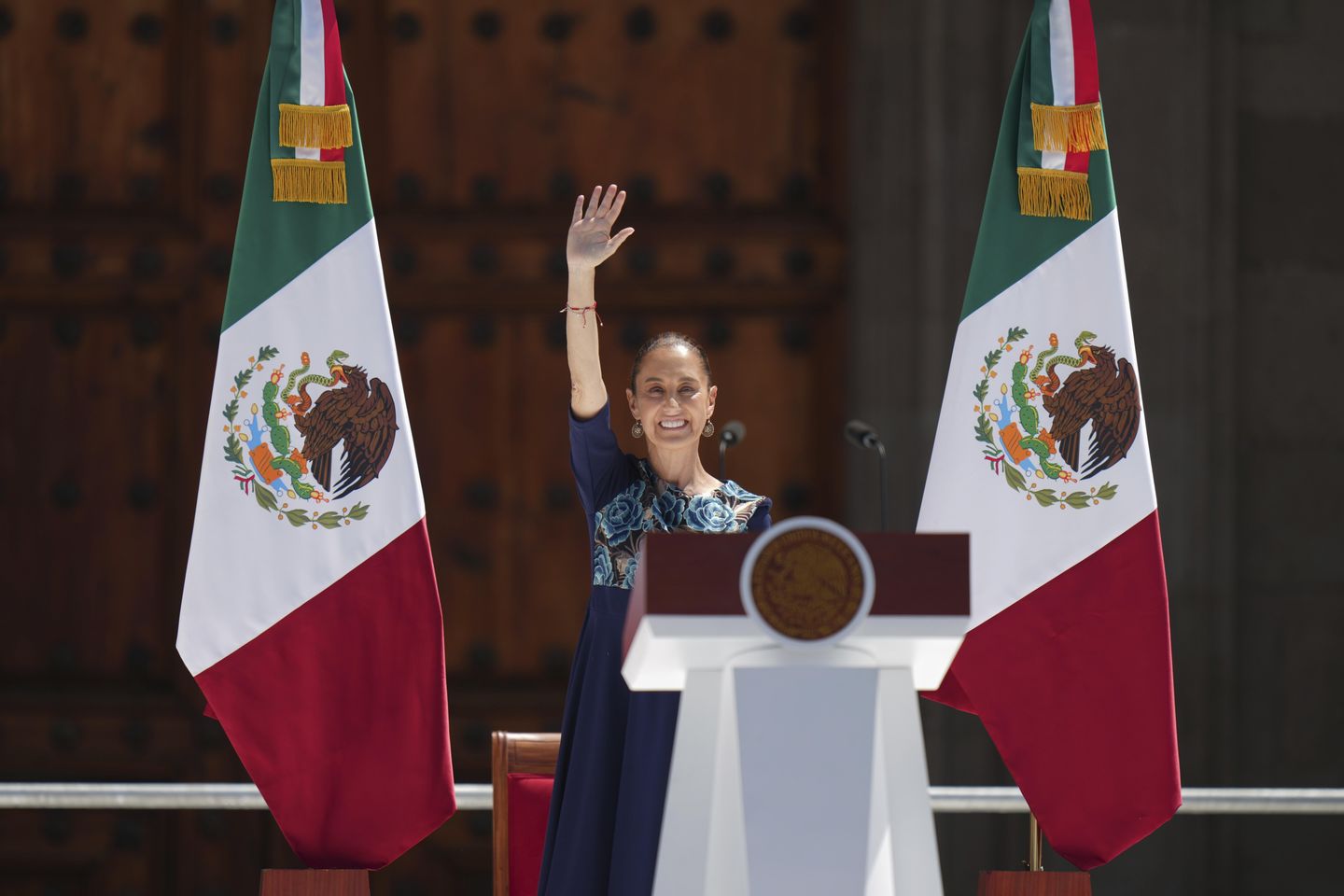On a beautiful Sunday, Mexico City’s main plaza, the Zócalo, was abuzz with activity. The sprawling square, which can hold up to 100,000 people, was filled to the brim with tens of thousands of jubilant Mexicans. The atmosphere was electric, with the crowd’s cheerful chatter, laughter, and heartfelt cheers reverberating through the historic city center.
The reason for this festive spirit was not a national holiday or traditional festival. Instead, it was a political milestone that had sparked the widespread jubilation. The United States, Mexico’s powerful northern neighbor, had decided to postpone tariffs on many of the country’s goods. On this day, the crowd had convened to celebrate this significant reprieve, and the person leading them was none other than their President, Claudia Sheinbaum.
Sheinbaum, a scientist and environmentalist by training, is a political force in her own right. She is the first woman to be elected as the Mayor of Mexico City, one of the world’s largest cities. Her leadership and diplomatic skills were put to the test during the recent tariff tussle with the United States. The decision by the U.S. to postpone the imposition of tariffs on Mexican goods was, in many ways, a testament to her deft handling of the situation.
As Sheinbaum stepped onto the stage in Zócalo, the crowd erupted into cheers, waving Mexican flags and homemade signs. The President, clad in her customary white shirt and blue jeans, greeted the crowd with a broad smile and open arms. The joyous scene in the Zócalo was a stark contrast to the tense weeks that had preceded this moment.
The proposed tariffs were a significant concern for Mexico. The United States is Mexico’s largest trading partner, and the imposition of tariffs could have had a severe impact on the Mexican economy. Many Mexican industries, especially the automobile, electronics, and agricultural sectors, heavily rely on exports to the U.S. The threat of tariffs had cast a dark shadow over these industries, creating a sense of uncertainty and fear.
In response to the proposed tariffs, Sheinbaum and her team had been actively engaged in negotiations with the U.S. government. They argued that the tariffs would not only hurt Mexico but also have adverse effects on the U.S. economy. They pointed out that many American companies rely on Mexican imports for their production and that the tariffs could lead to increased prices for American consumers.
The Mexican negotiating team also highlighted the efforts made by Mexico in addressing the issues raised by the U.S., such as immigration and drug trafficking. They emphasized that a collaborative approach would be more beneficial for both countries rather than punitive measures like tariffs.
The negotiations were arduous and fraught with tension. However, the Mexican team’s tenacity and strategic diplomacy eventually paid off. The U.S. government agreed to postpone the tariffs, providing a sigh of relief for many in Mexico and across the globe.
Back in the Zócalo, Sheinbaum addressed the jubilant crowd. She thanked them for their unwavering support during the challenging times and emphasized the importance of unity in the face of adversity. She also hailed the decision to postpone the tariffs as a victory for Mexico and a testament to the strength of the Mexican people.
Sheinbaum’s speech was met with thunderous applause and chants of her name. The people of Mexico City, and indeed the entire country, were clearly proud of their President. The celebration that ensued was not just about the postponement of tariffs; it was a celebration of Mexican resilience, unity, and determination.
As the day drew to a close, the Zócalo remained filled with people, their spirits undiminished. The vibrant Mexican flags fluttered in the gentle breeze, and the air was filled with the melodious sounds of mariachi bands. The joyful celebration that had taken over Mexico City’s main plaza was a testament to the resilience of the Mexican people and their undying spirit of unity and hope.
The decision to postpone the tariffs was indeed a cause for celebration. However, it was also a reminder of the importance of diplomacy, negotiation, and mutual respect in international relations. It underscored the fact that punitive measures like tariffs often have far-reaching impacts, affecting not just the targeted countries but also the global economy. And most importantly, it highlighted the power of unity and resilience in overcoming challenges.
As Mexico looks towards the future, it does so with renewed confidence and optimism. The tariff saga has underscored the strength and resilience of the Mexican people and their leadership. And on this Sunday, as tens of thousands gathered in the Zócalo to celebrate, it was clear that Mexico was not just ready to face any challenge that came its way, but also to come out stronger and more united than ever before.









